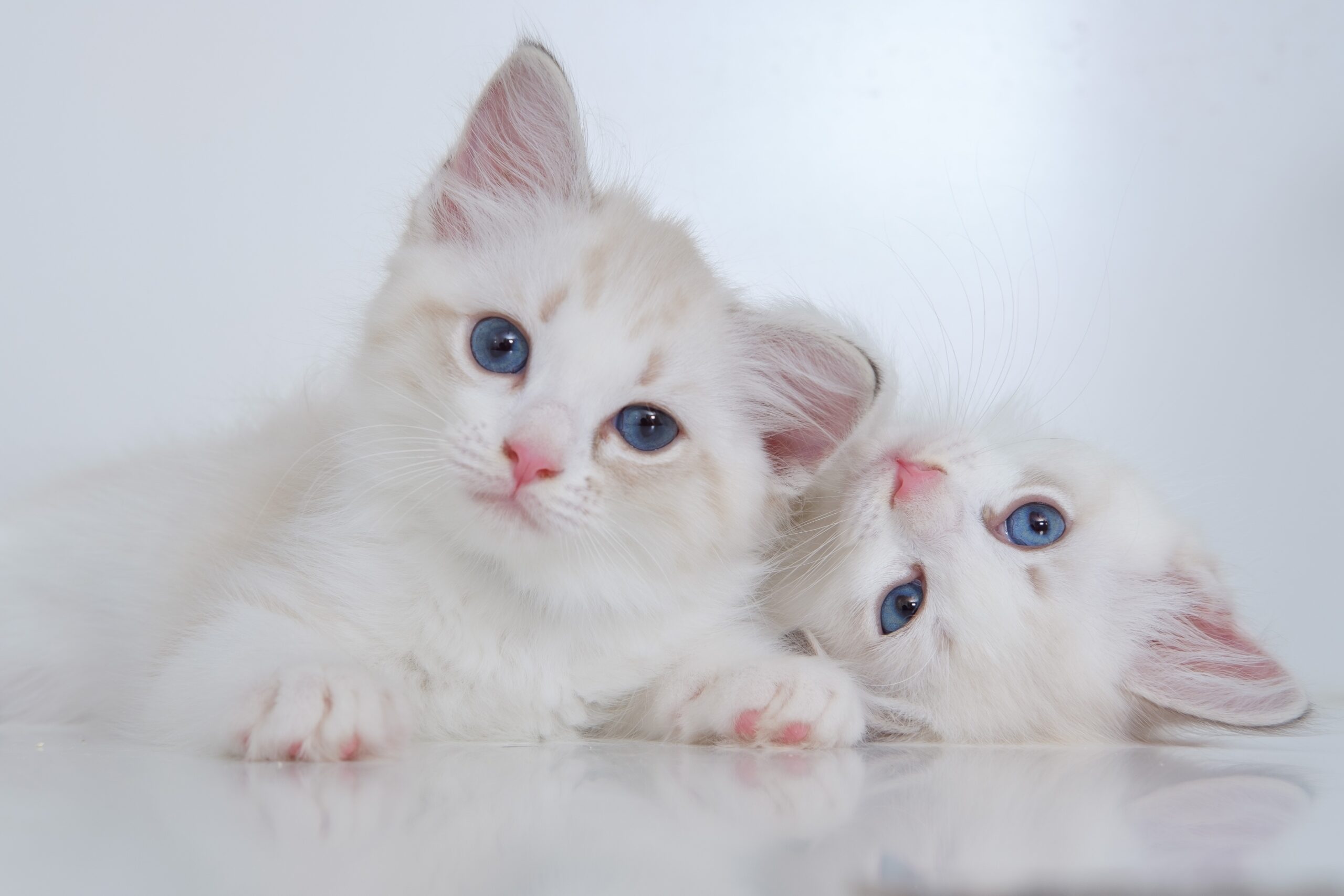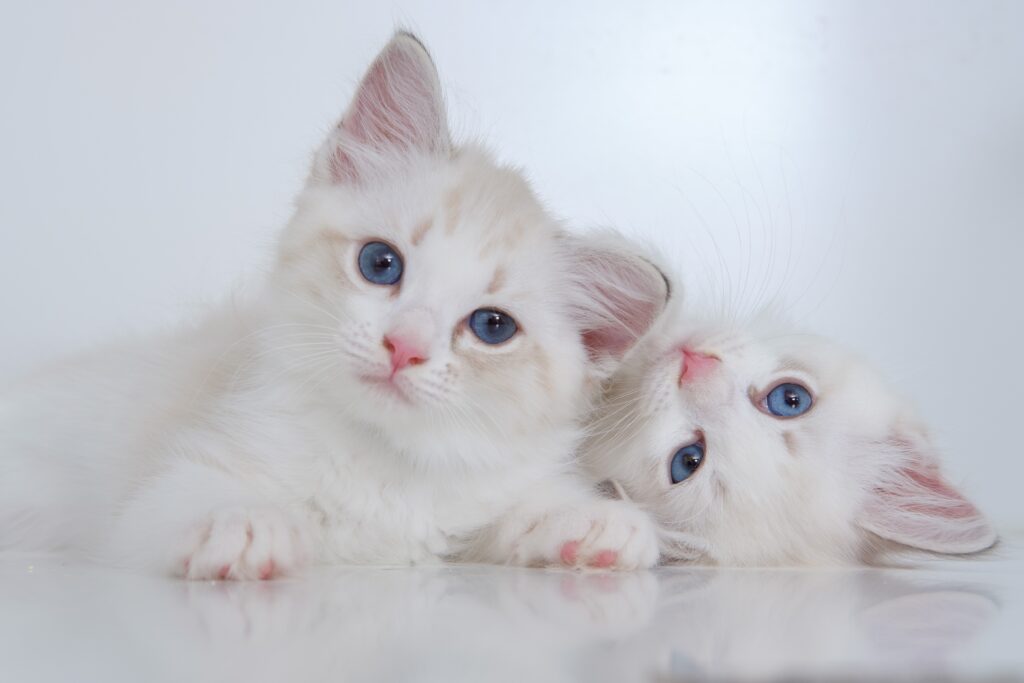
Raising kittens is a big responsibility. They require much care and attention, which can be challenging while making time for your family and other obligations. In this article, we’ll discover what your 2-week-old kitten needs – from feeding to playtime to sleep. We’ll also discuss how you can help your new pet grow into an independent, confident adult cat.
Kitten Development from 1 Week to 2 Weeks Old:
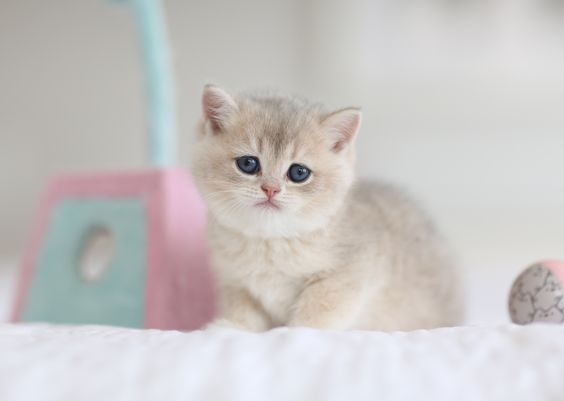
At one week old, kittens are busy exploring their new home and the world around them. They also develop critical skills to help them survive in their new environment, such as hunting and hiding.
At 2 weeks old, your kitten has become more socialized and is beginning to bond with you. During this time, they will be increasingly curious about everything around them, including you! Kittens at this age are very active and playful, so expect lots of climbing, playing chase, and cuddling.
Characteristics:
Kittens at 2 weeks old are lively, playful, and curious but can resist environmental changes. As they grow and develop, be prepared for noise and activity. Feed them kitten food as their primary source of nutrition, which will help their growth and development. Keep an eye on your kitty’s temperature; it can get hot in a house filled with kittens!
Behavior:

At two weeks old, Kittens are becoming more active and playful. They may begin to follow you around and try to play with your feet or hands. Their vision and hearing also develop, so they may be attracted to loud noises or moving objects. They are still very curious and exploratory at this age, so providing them with a safe environment to learn and play is essential.
Kitten’s Personality:
You will see much of your kitten’s personality during the second week. During this period, you can observe how your kitten behaves when they’re alone and when they’re with other people. You can also try to see how friendly they are with people (and other animals).
Some things to look for in a 2-week-old kitten’s personality include:
- Curiosity: Kittens who are curious and playful are more likely to be outgoing and friendly as adults.
- Sociability: Kittens who are comfortable around people and other animals are more likely to be well-adjusted adults.
- Temperament: Kittens who are calm and relaxed are likelier to be easygoing adults.
It is important to start socializing your kitten early on so that they can develop a healthy personality. You can do this by introducing them to different people and animals and providing them with a safe and comfortable exploring environment.
Health and Development: A Second Week Checkup

The second week is essential for your kitten’s health and development. They are starting to explore their surroundings and interact with the world around them. It is essential to schedule a visit to your veterinarian this week to ensure your kitten is healthy and developing correctly.
At their second-week checkup, your veterinarian will check your kitten’s weight, eyes, ears, nose, mouth, and skin for any signs of infection or illness. They will also assess your kitten’s developmental progress, which should include:
- Weighing between 100 and 150 grams.
- Opening their eyes and ears.
- Starting to walk and explore their surroundings.
- Starting to develop their teeth.
Your veterinarian may recommend additional testing or treatment if your kitten is not meeting these milestones.
In addition to checking your kitten’s physical health, your veterinarian will also discuss your kitten’s vaccination schedule. Vaccinations are essential for protecting your kitten from common diseases. Your veterinarian will recommend a vaccination schedule for your kitten’s age, lifestyle, and health history.
Taking your kitten to the veterinarian for a second-week checkup is essential in ensuring their health and well-being. You can help your kitten develop into a healthy and happy cat by scheduling a checkup during this critical time.
Kittens Care at 2 Weeks Old:

Kittens are playful and curious little creatures who need your attention to keep them healthy. Here are some tips for caring for a kitten at 2 weeks old:
- Provide plenty of toys and playtime. Kittens love to bat around toy pieces, explore their surroundings, and chase each other around. Ensure there is always something fun on hand so they can stay energized!
- Feed them small meals several times per day instead of one large meal. This will help prevent obesity and dental problems down the road. Kittens constantly eat during their first two weeks as they try to digest everything in their system quickly.
- They should have access to a dish of fresh water at all times. You can introduce them to solid food, but make sure it’s kitten-specific food that’s easy to digest.
- Keep the litter box clean – even when you’re not home – by scooping it once a day or putting fresh litter in every few days. Kitty feces (along with urine) can contain parasites that can harm kittens’ health if ingested.
- At two weeks old, kittens are still very fragile. Handle them gently, and provide them with a warm, safe place to sleep. Talk to your veterinarian if you have any concerns about their health or development.
Overall, kittens require a lot of care and attention. However providing them with the proper care will help them grow into healthy and happy cats.
Feeding Your Kittens for the 2nd Week:
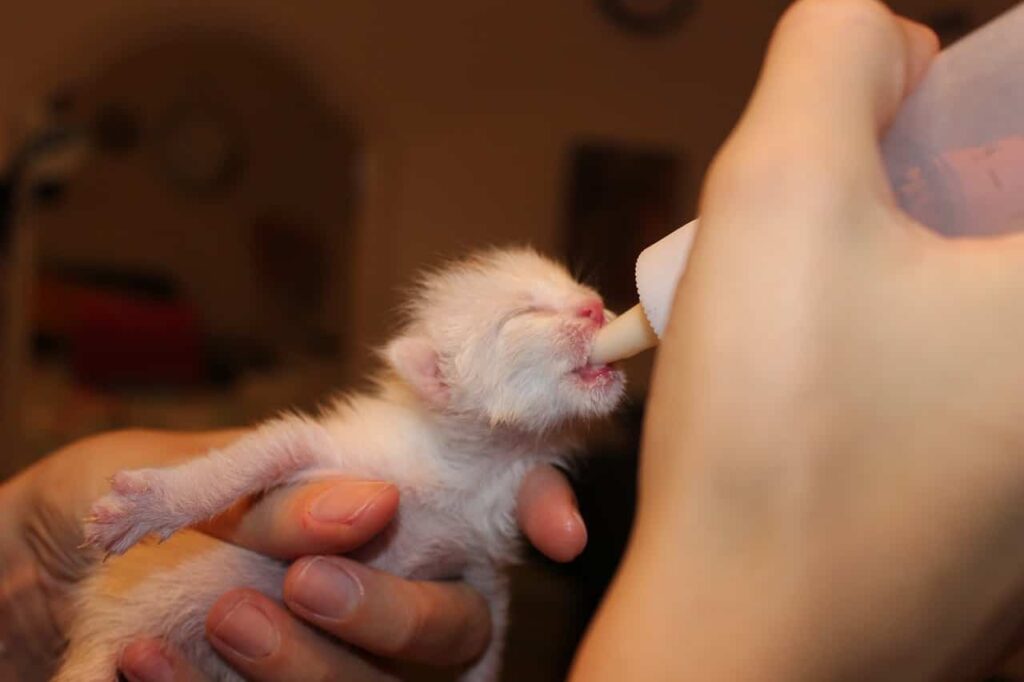
Feeding kittens appropriately is very important for their health and well-being. Kittens that get the right amount of food will grow properly and are less likely to grow up with various medical conditions. The main thing to remember is that kittens should be fed significantly less than adult cats. Kittens at this age should be fed four times a day.
They need high-quality kitten food that is rich in protein and fat. The amount you provide your kitten will depend on breed, age, and health condition. In the 2nd week of bringing your kitten home, you should feed them with kitten food until they become 7 weeks old. During this time, you can gradually change the food your kitten eats.
Grooming Activities for the 2nd week:
If your kitten looks tidy and smells good, groom them regularly. Many breeds of cats need regular grooming to keep them healthy and happy. Grooming activities can be a lot of fun for you and your kitten. Some of the most common grooming activities include:
- Brushing: Brushing your cat is a great way to keep its coat healthy and clean. You can use a wide-toothed comb or a small brush to groom your cat. Brushing will also lift the hair away from their skin, making them less likely to get matted fur.
- Trimming nails: It would help if you regularly cut your kitten’s claws. If their nails are left to grow, they can grow into the skin and cause pain and bleeding. If you want to trim their nails, you can use a particular pair of nail clippers.
- Bathing: Many cats love to be bathed, but many hate it. To clean your cat, use lukewarm water and mild shampoo. Avoid using solid shampoos since they can dry out your cat’s skin.
- Cleaning and Flea Control: Kittens come with clean fur and start to shed within the first few days of their life. As they grow, kittens require more care – especially if you have multiple cats. To keep parasites-free, you must clean them regularly and apply a flea control product every week.
How to House Train Kittens at 2 Weeks Old:
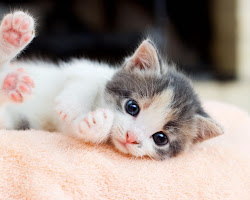
House training a kitten is the most critical thing you can do to bond with them and earn their love. It is a fact that kittens will pee and poop where they feel comfortable. A newborn kitten has a minimal capacity to control its bladder. During the first few weeks of their lives, kittens can only control their bladder for about 2 hours. During the second week, you will have to take them outside every 2 hours so that they can relieve themselves. You can take them to an indoor or outdoor litter box. You can make the process of house training easier for both you and your kitten by following these steps:
- Choose the right location:
You will want to pick a location to take the kitten to the potty. This location should be calm, quiet, and well-lit. You can also choose to use a pet training pad.
- Choose the suitable litter:
There are many different types of litter on the market. You can choose a scented or unscented litter. You should find a waste that you and your kitten are happy with.
- Set a schedule:
You should set a schedule for when you will clean their litter box. You can also plan when you will take your kitten for pooping.
Conclusion:
Whether you’ve just adopted a kitten or you’re thinking about it, there are some things you need to know about these sweet babies. Kittens 2 weeks old are still vulnerable and require much care and attention. Ensure you are prepared to provide them with everything they need before bringing them home. With the proper care, your kitten will grow into a healthy and happy cat that will bring you joy for many years. We hope you have a fun and comfortable kitten journey!
What does a two-week-old kitten look like?
A two-week-old kitten is about the size of a mouse and has very sharp claws. The eyes are not fully open yet, and the ears are still folded. The fur is soft and fluffy.
How to feed a two-week-old kitten?
Kittens need to be fed every 2-3 hours, so if you’re Bottle-feeding, you’ll need to wake up at night to feed them. Keeping their tummies warm is essential, so place a heating pad under half of their bed on a low setting. You can find more instructions on how to care for your kitten on our website.
How often do one-week-old kittens poop?
Kittens at two weeks old generally poop after every meal, about 3-4 times daily.
What are some of the best things to do with a kitten when it’s two weeks old?
- Play with them! Kittens love running around and chasing things, so get some toys ready and entertain them.
- Teach them simple commands like “sit” or “shake.”
- Provide plenty of food and water.
- Be patient; kittens take time to learn about the world around them.
Do 2 week old kittens need milk?
Yes, 2-week old kittens need milk. They should be fed kitten milk replacer every 2-3 hours. Kitten milk replacer is specially formulated to meet the nutritional needs of kittens at this age. It is essential not to feed kittens cow’s milk, as it can cause diarrhea and other health problems.
Can you touch 2 week old kittens?
Yes, you can touch 2-week old kittens, but it is essential to be gentle. Kittens at this age are still very fragile and can easily be injured. Washing your hands thoroughly before and after touching kittens is also essential, as they are susceptible to germs.
When can kittens hear?
Kittens can start hearing around the 16th day of their life. However, their hearing is not fully developed until about 3 weeks old. At first, kittens can only hear high-pitched sounds. As they age, their hearing range will expand to include lower-pitched sounds.
